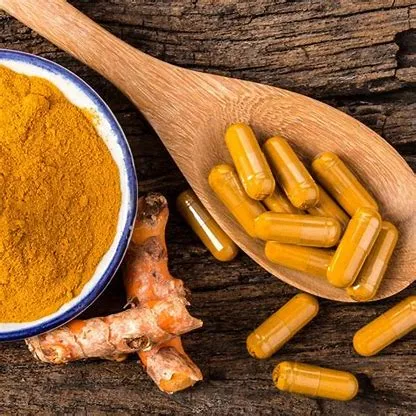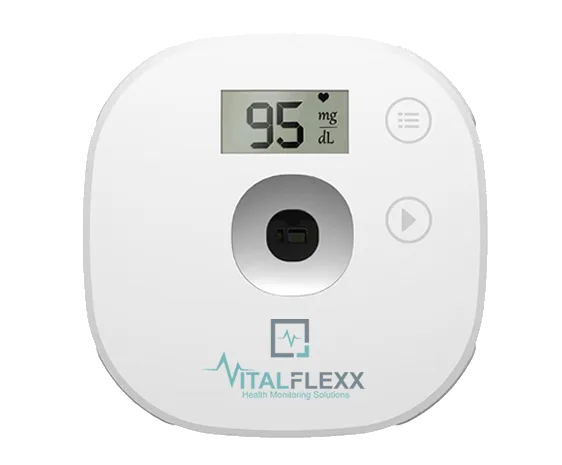Join Our Blog!
Sign up below to get the latest from our Blog and Newsfeed!

Top Benefits of Turmeric - An In-Depth Look
The Wonder Spice: An In-Depth Look at Turmeric and its Benefits as a Supplement
Turmeric has been a staple in traditional medicine for centuries and has recently gained popularity as a natural supplement for various health benefits. But what exactly is turmeric, and how does it work? In this article, we’ll dive into the science behind turmeric, its key ingredient, curcumin, and the numerous health benefits associated with taking turmeric supplements.
What is Turmeric?
Turmeric is a plant that belongs to the ginger family and is native to Southeast Asia. The spice, which has a warm, bitter taste, is commonly used in Indian and Middle Eastern cuisine, as well as in traditional Ayurvedic medicine. The root of the turmeric plant is used to produce a bright yellow powder, which is then used as a spice or a supplement.
Power of Curcumin
Curcumin is the active ingredient in turmeric that is responsible for its numerous health benefits. In fact, curcumin makes up about 3% of turmeric by weight. In addition, Curcumin has potent anti-inflammatory and antioxidant properties, which are thought to be responsible for its health benefits.
Health Benefits of Turmeric Supplements
Taking turmeric supplements can offer a number of health benefits, including reducing inflammation, improving brain function, and even fighting depression. Let’s take a closer look at some of the most well-studied benefits of turmeric.
Turmeric for Inflammation
Inflammation is a natural response of the body to injury or infection. However, chronic inflammation can lead to several health problems, including heart disease, cancer, and arthritis. Several studies have shown that turmeric, particularly its active ingredient curcumin, can reduce inflammation in the body.
In a study published in the journal “Oncogene,” researchers found that curcumin could suppress inflammation in colon cancer cells [1]. In another study published in the “Journal of Clinical Psychopharmacology,” researchers found that curcumin was effective in reducing inflammation and improving symptoms of depression [2].
Turmeric for Brain Function
Turmeric has also been shown to have positive effects on brain function. For example, in a study published in the “American Journal of Geriatric Psychiatry,” researchers found that taking a turmeric supplement improved memory and attention in people with mild, age-related memory loss [3].
In another study published in the “Journal of Psychopharmacology,” researchers found that curcumin could cross the blood-brain barrier and improve brain function in people with depression [4].
Turmeric for Joint Pain
Turmeric is also commonly used to reduce joint pain, particularly in people with arthritis. For example, in a study published in the “Journal of Alternative and Complementary Medicine,” researchers found that taking a turmeric supplement reduced joint pain and improved function in people with osteoarthritis [5].
Different Forms of Turmeric Supplements
Turmeric supplements come in various forms, including capsules, powders, and liquids. Each form offers its unique benefits, and it can be helpful to understand the differences before making a purchase.
Capsules
Turmeric capsules are one of the most popular forms of supplements. They're easy to take and come in a convenient, portable form. Capsules also allow for precise dosing and provide a quick, convenient way to get your daily dose of turmeric.
Powders
Turmeric powder is another popular form of supplement. It's versatile and can be added to food, drinks, or even smoothies. It's also an excellent option for those who want to experience the full flavor of turmeric and add a little extra to their diet.
Liquids
Turmeric liquids are a newer form of supplement and are gaining popularity quickly. They're absorbed quickly into the bloodstream and provide a fast-acting dose of turmeric. They're also an excellent option for those who have trouble swallowing pills.
Gummies
Turmeric gummies are a newer form of supplement and are gaining popularity quickly. They're also an excellent option for those who have trouble swallowing pills.
What to Consider Before Buying Turmeric Supplements Online
When shopping for turmeric supplements online, a few things to keep in mind to ensure you're getting a high-quality product.
● Check for third-party certification: Look for turmeric supplements certified by a third-party organization such as the USP or NSF. This will help ensure that you're getting a safe and effective, high-quality product.
● Read product labels: Make sure to read the label on any turmeric supplement you're considering. Look for the active ingredient, curcumin, and make sure it's in a form that's easily absorbed by the body.
● Look for clinical studies: Research shows that turmeric supplements can offer a range of health benefits, so it's important to look for products tested in clinical studies. This will help ensure that you're getting a safe and effective product.
● Consider price: Turmeric supplements can vary significantly, so it's important to find a product within your budget. However, it's also important to remember that the cheapest option may sometimes be the best.
Considering these factors, you can be sure that you're getting a high-quality turmeric supplement right for you. And, by shopping at the Flexxhealth store, you can be confident that you're getting a product that's safe, effective, and backed by science.
Dosage and Side Effects
When taking turmeric supplements, it’s important to follow the recommended dosage. The recommended daily dose of turmeric is 500-1,000mg, taken in divided doses throughout the day. It’s also important to note that turmeric supplements can interact with certain medications, including blood thinners and diabetes medications. If you are concerned about taking turmeric supplements, speak with your doctor.
Turmeric is a spice with a rich history of use in traditional medicine. Its active ingredient, curcumin, has potent anti-inflammatory and antioxidant properties, responsible for its numerous health benefits. Turmeric is a spice with a rich history of use in traditional medicine. It's important to follow the recommended dosage and speak with your doctor if you have any concerns.
The Bottom Line
So, turmeric might be worth considering if you're looking for a natural supplement to help improve your overall health. And, if you're interested in trying out turmeric supplements, be sure to check out the selection available at the Flexxhealth store. With a wide range of products to choose from, you're sure to find a supplement that works for you.
In conclusion, turmeric is a powerful spice used for centuries in traditional medicine. Its active ingredient, curcumin, has numerous health benefits and is effective in reducing inflammation, improving brain function, and reducing joint pain. So, why not add a turmeric supplement to your daily routine and start experiencing the benefits yourself?
References
Pricci, M., Girardi, B., Giorgio, F., Losurdo, G., Ierardi, E. and Di Leo, A. (2020). Curcumin and Colorectal Cancer: From Basic to Clinical Evidences. International Journal of Molecular Sciences, [online] 21(7), p.2364. doi:https://doi.org/10.3390/ijms21072364.
Matias, J.N., Achete, G., Campanari, G.S. dos S., Guiguer, É.L., Araújo, A.C., Buglio, D.S. and Barbalho, S.M. (2021). A systematic review of the antidepressant effects of curcumin: Beyond monoamines theory. Australian & New Zealand Journal of Psychiatry, 55(5), pp.451–462. doi:https://doi.org/10.1177/0004867421998795.
Small, G.W., Siddarth, P., Li, Z., Miller, K.J., Ercoli, L., Emerson, N.D., Martinez, J., Wong, K.-P., Liu, J., Merrill, D.A., Chen, S.T., Henning, S.M., Satyamurthy, N., Huang, S.-C., Heber, D. and Barrio, J.R. (2018). Memory and Brain Amyloid and Tau Effects of a Bioavailable Form of Curcumin in Non-Demented Adults: A Double-Blind, Placebo-Controlled 18-Month Trial. The American Journal of Geriatric Psychiatry, [online] 26(3), pp.266–277. doi:https://doi.org/10.1016/j.jagp.2017.10.010.
Liao, D., Lv, C., Cao, L., Yao, D., Wu, Y., Long, M., Liu, N. and Jiang, P. (2020). Curcumin Attenuates Chronic Unpredictable Mild Stress-Induced Depressive-Like Behaviors via Restoring Changes in Oxidative Stress and the Activation of Nrf2 Signaling Pathway in Rats. Oxidative Medicine and Cellular Longevity, 2020, pp.1–11. doi:https://doi.org/10.1155/2020/9268083.
Van Ameyde, M. and Hodgden, J. (2022). In patients with osteoarthritis, is curcumin, compared to placebo, effective in reducing pain? The Journal of the Oklahoma State Medical Association, [online] 115(1), pp.28–30. Available at: https://www.ncbi.nlm.nih.gov/pmc/articles/PMC9605491/.

